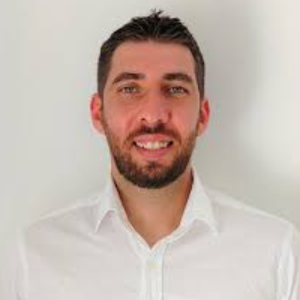Title : Therapeutic applications of mesenchymal stromal cells in COVID-19: Promising evidence from in vitro results.
Abstract:
Background: Severe acute respiratory syndrome coronavirus 2 (SARS-CoV-2) is responsible for the coronavirus disease 2019 (COVID-19) pandemic, which was initiated in December 2019. COVID-19 is characterized by a low mortality rate (< 6%); however, this percentage is higher in elderly people and patients with underlying disorders. COVID-19 is characterized by mild to severe outcomes. Currently, several therapeutic strategies are evaluated, such as the use of anti-viral drugs, prophylactic treatment, monoclonal antibodies, and vaccination. Advanced cellular therapies are also investigated, thus representing an additional therapeutic tool for clinicians. Mesenchymal stromal cells (MSCs), which are known for their immunoregulatory properties, may halt the induced cytokine release syndrome mediated by SARS-CoV-2, and can be considered as a potential stem cell therapy.
Aim: To evaluate the immunoregulatory properties of MSCs, upon stimulation with COVID-19 patient serum.
Methods: MSCs derived from the human Wharton's Jelly (WJ) tissue and bone marrow (BM) were isolated, cryopreserved, expanded, and defined according to the criteria outlined by the International Society for Cellular Therapies. Then, WJ and BM-MSCs were stimulated with a culture medium containing 15% COVID-19 patient serum, 1% penicillin-streptomycin, and 1% L-glutamine for 48 h. The quantification of interleukin (IL)-1 receptor a (Ra), IL-6, IL-10, IL-13, transforming growth factor (TGF)-β1, vascular endothelial growth factor (VEGF)-a, fibroblast growth factor (FGF), platelet-derived growth factor (PDGF), and indoleamine-2,3-dioxygenase (IDO) was performed using commercial ELISA kits. The expression of HLA-G1, G5, and G7 was evaluated in unstimulated and stimulated WJ and BM-MSCs. Finally, the interactions between MSCs and patients' macrophages were established using co-culture experiments.
Results: Thawed WJ and BM-MSCs exhibited a spindle-shaped morphology, successfully differentiated to "osteocytes", "adipocytes", and "chondrocytes", and in flow cytometric analysis were characterized by positivity for CD73, CD90, and CD105 (> 95%) and negativity for CD34, CD45, and HLA-DR (< 2%). Moreover, stimulated WJ and BM-MSCs were characterized by increased cytoplasmic granulation, in comparison to unstimulated cells. The HLA-G isoforms (G1, G5, and G7) were successfully expressed by the unstimulated and stimulated WJ-MSCs. On the other hand, only weak expression of HLA-G1 was identified in BM-MSCs. Stimulated MSCs secreted high levels of IL-1Ra, IL-6, IL-10, IL-13, TGF-β1, FGF, VEGF, PDGF, and IDO in comparison to unstimulated cells (P < 0.05) after 12 and 24 h. Finally, macrophages derived from COVID-19 patients successfully adapted the M2 phenotype after co-culturing with stimulated WJ and BM-MSCs.
Conclusion: WJ and BM-MSCs successfully produced high levels of immunoregulatory agents, which may efficiently modulate the over-activated immune responses of critically ill COVID-19 patients.



